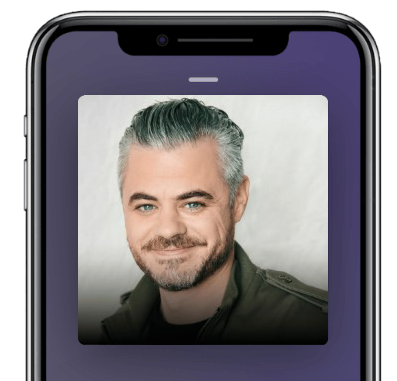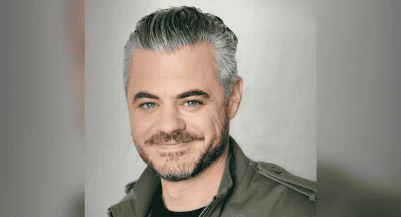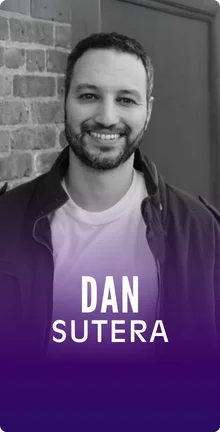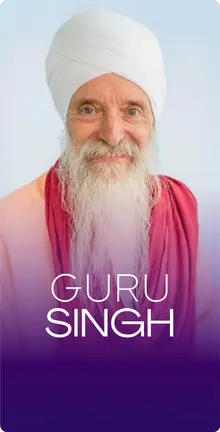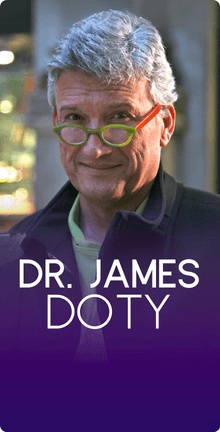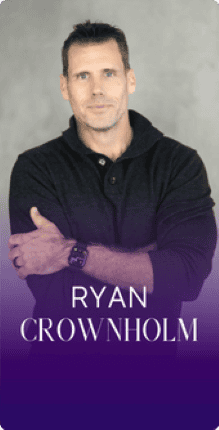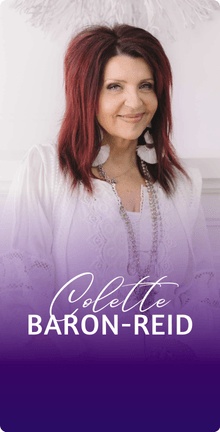In this Episode
- [02:38]Stephan welcomes Scott Harrison, who talks about his decade in the nightclub industry and his hedonistic lifestyle.
- [08:39]At age 28, Scott experiences a turning point that leads him to reevaluate his life and seek radical change.
- [14:03]Scott recounts arriving in Liberia and witnessing an overwhelming need for medical care.
- [19:35]Stephan inquires about what inspired Scott to create Charity: Water.
- [26:40]Scott discusses the challenges and strategies in launching a world-changing nonprofit organization, focusing on marketing, branding, and funding.
- [35:34]Scott outlines his key focus for the organization.
- [43:09]Scott describes overcoming addictive substances and behaviors.
Scott, it’s so great to have you on the show.
This would be fun. Thanks for having me. It was a little painful hearing your bio read.
Well, you’re kind of a big deal.
Not at all.
You’ve done amazing things, which is impressive. I’m sure a lot of people are grateful.
I am grateful for your support and friendship over the years.
Of course. How did you go on this crazy journey? Impetus, some outside force or inner realization contributed to you making this 90-degree turn and going completely. If it’s your friends at the time, looked at as off the rails.
I saw that new Netflix movie this week with my wife, Leave the World Behind. I was reminded how much I like chapters in movies. Wes Anderson used to do this in chapter one, chapter two. I think my life is in three chapters. First, I was born in Philadelphia, in a middle-class family. My dad was a businessman. My mom was a writer for The Philadelphia Inquirer and in a local paper. When I was four years old, we moved to South Jersey, to a suburb, and bought a little house at the end of a cul de sac.
It was an ugly gray four-bedroom house on call it a quarter of an acre. And we moved in the dead of winter. Unknown to us at the time, this new house came with a carbon monoxide gas leak. And we all started getting headaches. And on New Year’s Day, 1980, My mom collapses unconscious on the floor of her bedroom. She is the canary in the coal mine. This leads to hospital visits, blood tests, and then the discovery of massive amounts of carbon monoxide in her bloodstream. This then led to the discovery of the gas leak, which my dad, even after calling the gas company a couple of times, assured us was fine.
My dad actually found it with an HVAC friend, and he unceremoniously ripped out this heat exchanger and threw it on the curb, but the damage was really done for my mom irreparably. He and I bounced back because we were only getting evening exposure. Mom was getting 24/7 exposure, unpacking boxes, putting frames on the wall, and working in the basement near the leak. What happened to her was her immune system was irreparably shut down, and her body was no longer able to process anything chemical. Perfume would make her sick, soap would make her sick, car fumes, and the ink from books would make her sick, which pains her as a writer.
I remember there were signs on the outside of our house: keep out, keep out chemically sensitive patients. Unfortunately, I have over 40 years of intimate experience with masks, including three M’s whole suite of masks, from the N95 to the charcoal mask. I never really saw my mom’s face again. After the accident, she always covered her face with a mask. And I just remember specific kinds of oddities where she still wanted to read. I would take her books, and I would bake them in the oven at 200 or 250.
Charity is the ability to use one's position of influence, relative wealth and power to affect lives for the better. Share on XAnd over time, that smell of ink would wear off. Then I would walk upstairs, and at the time, she was living in a tile-covered bathroom. And the room was then covered in aluminum foil to keep any sort of varnish away from her. And she would open this door with a kind of crinkle of aluminum foil. She would also be holding a cellophane bag with cotton gloves. And she would have her mask on. She would take this slightly burned book for me. She would put it inside the bag with her mask, and then she would shut the door. And that was how she was able to read.
So just weird
Weird childhood, only Child Family Planning stopped with this amazing dad who was kind of a six foot one middle-class president of a small-cap electronics company. He just never ran off with the secretary. He stayed by her faithfully and loyally. My parents had a deep and authentic Christian faith that they would credit wholeheartedly for their ability to manage this. What would be a lifetime of trials? They brought me up in the church, and they brought me up with a foundation of spirituality and morality.
And if you’d asked me what I wanted to be when I grew up at 13 or 15, I would have said, “I’m going to be a doctor. And I’m going to cure my mom. And then I’m going to cure all the other sick people in her world who had that similar condition.” That was really chapter one. Instead of becoming a doctor, at 18 years old, I became a nightclub promoter. It’s almost the opposite. Almost the same thing, right? I think I had that prodigal son moment. And it’s so cliche and kind of banal to look back on. But I woke up and said, “Now it’s my turn to have fun.”
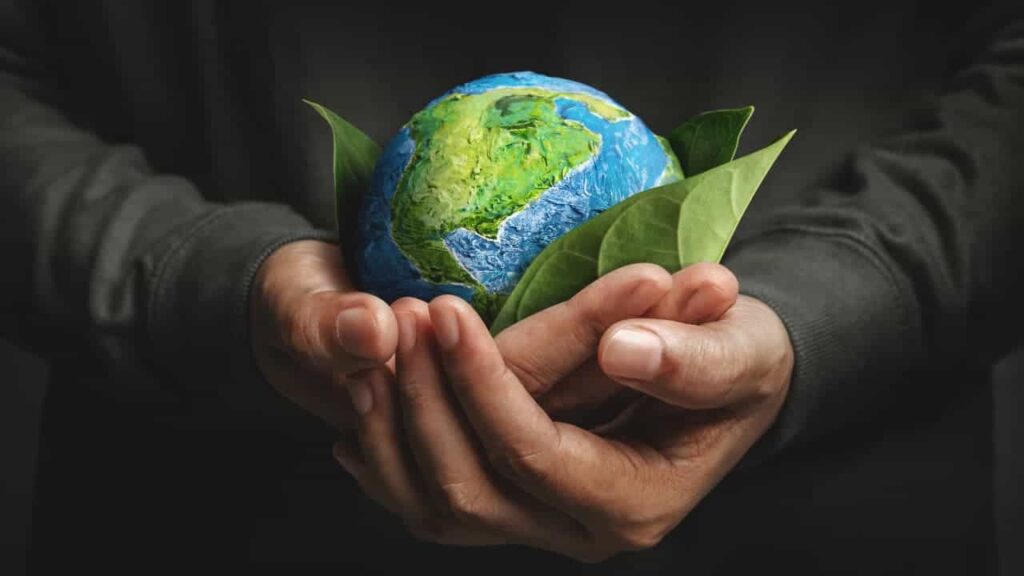
I sacrificed my childhood. I’ve never had a drink. I’ve never smoked, I didn’t have sex, I didn’t use bad language. Now, I want to do all of those things. And the place to do those things was New York City. I realized it was actually a job. There was a profession where you could get paid money to do all those things. And it was called a nightclub promoter. For the next ten years, to the horror of my conservative Christian parents, I climbed up New York City’s social ladder to become one of the top nightclub guys in all of New York City. Well, it was an empty honor, really.
But I worked at 40 clubs just to give you a sense of the intensity of this experience. I have worked at 40 clubs for over ten years, and we would describe it as a life of models and bottles. We would sell $1,000 bottles of champagne to bankers and to rich guys because they wanted to hang around with fashion models and celebrities. If we could orchestrate these two things in perfect unity, hire the best DJs and work at the best clubs with the one-way glass where we could see outside, but they couldn’t see us choosing who came into the club past the velvet rope. Then, this was the mystery. This was promoting clubs. And maybe it’s no surprise to anybody listening.
I picked up all of the vices that came with the territory. It started with smoking and then drinking, and then some pot and then some cocaine and then some ecstasy and some MDMA and just experimentation with pretty much everything short of heroin, then the pornography, then the strip clubs, then the gambling, and just a real debauched hedonistic life advice that looked really glamorous on the outside, because you would have seen me jumping into a stretch limo with three models on the cover of fashion magazines and jumping in somebody else’s private plane to go to booziest, Brazil for vacation, or Punta de les to Uruguay or Fashion Week in Milan or Paris, but on the inside, rotting, I mean spiritually bankrupt, emotionally bankrupt, morally bankrupt, never in love are never in a healthy relationship with any of these girls.
The opposite of my life looked like trying to find my way back to faith.
That was chapter two. And that came to an end or began to come to an end one day when I woke up at 28 years old, and half my body went numb. Just inexplicably, I just couldn’t feel half my body. And I remember walking over to my loft in midtown Manhattan and turning on the hot water. And I watched the steam coming off of the water, and I ran my hand in my arm under this boiling water, and I couldn’t feel anything. And I was convinced something was terribly wrong with me. Perhaps it was a brain tumor or some incurable disease. And that was such a clarion cathartic wake-up call. And I was convinced I was gonna die.
And it very quickly led me to assess my 28 years on planet Earth. And what had they meant? If I did have a brain tumor, if I was given weeks or a month to live, what would my life have meant? The only thing I could come up with that somebody would be able to write on my tombstone was, “Here lies a man who’s gotten a million people drunk; utilize a man who partied well and got a million plus people wasted.” And I think I realized in that moment of potential mortality how far I had come; I really found myself in the proverbial Pigpen, covered in pig feces, and missing home, missing what I’ve been brought up to believe and what I’ve been brought up to value, it took me about four months to find my way out of nightlife.
And I asked a pretty simple question: “What would the opposite of my life look like?” I know, in business, there’s a lot of talk of pivots. I think I realized that a pivot was not in order. “Okay, this was a radical 180-degree change that was in order: how do I think the opposite, act to the opposite, do the opposite?” The opposite of my life looked like trying to find my way back to faith and trying to find my way back to God, and then giving one year of the ten years that I’d selfishly wasted in service to maybe, in quotes, at the time, the poor people who were suffering people who are less fortunate around the world.
That was my big idea. I said, “All right. I’m a radical guy; I’m going to sell everything I own. I’m out of nightclubs, and I’m gonna go become a humanitarian volunteer.” Then, I applied to the ten famous organizations that I had tangentially heard of, from Doctors Without Borders to the Red Cross and Salvation Army and World Visions. And maybe it’s no surprise that nobody would take me. I hit a dead end there, as I was rejected by about ten organizations. Very fortunately for me, and I’m in chapter two here.
One organization, which was not on the first list of ten, asked if I was willing to pay them $500 a month for the pleasure of volunteering. If I was willing to go live in the poorest country in the world, post-war, Liberia, West Africa, then I could join their mission. I said, “Oh, my gosh, this is the opposite. What’s the opposite of paying to volunteer and then actually going to the most extreme country on planet Earth? I feel like I should let you talk now.” And that was like a monologue that you didn’t ask for?
No, this is riveting. Wow. What happened once you arrived in Liberia? Did you have some come-to-Jesus moments?
Well, the job that I had applied for, and maybe some people listening can resonate with this, was not a job I was really qualified to do. I had applied for a position of volunteer photojournalist. Now, technically, I was not a photojournalist. I had gotten a degree from NYU, and I was kind of a part-time c minus student. I was very surprised when they actually mailed the diploma because I didn’t think I went to enough classes to graduate. But I was a pretty good writer. And I was a pretty good photographer just as a hobby. The mission that took me was a medical mission I want everybody to imagine now, taking a cruise liner.
Maybe not as big as the new versions or Carnival cruise liners, but an old cruise liner and a ship 522 feet that was converted from a hospital to a Floating Hospital. And this organization, called Mercy Ships, would sail this hospital ship up and down the coast of Africa with a very simple idea. Let’s bring the best doctors and the best surgeons from all over the world. Let’s encourage them to give us their vacation time. Let’s bring the highest quality medical services to people who couldn’t afford them and who wouldn’t have access to them in the country.
This was going to be my mission and my job. Again, I kind of winked at my job because I was paying 500 hours a month for the pleasure of doing this job, which was to document all of the life-saving work that happened on this hospital ship. The moment of coming to Jesus is my third day in West Africa. I remember waking up at five in the morning, putting on blue hospital scrubs, and grabbing my two Nikon D 1x digital cameras, which were new back then. They had those big, chunky memory cards. I had learned that the African government had given us a soccer stadium in the center of the capital city to triage the sick people who would come and meet our doctors.
I knew that over the course of the mission, I think, it was about eight months when we’d be in the country. We had 1500 available surgery slots to fill. And I remember stuff I’m thinking to myself like, “Are there 1500 People who are going to come with facial tumors and flesh-eating disease and cleft lips and cleft palates and in need of facial reconstruction? We were actually kind of niche in the things that our Surgeon specialized in.” I’ll never forget sneaking through the dusty city and this convoy of Landrovers with doctors, nurses, and surgeons.
As we approached the stadium, there were 5000 sick people standing in the parking lot, who had gotten there in the middle of the night to wait for us to open the doors of the stadium and begin triaging their needs. At the end of the day, about 48 hours later, we had handed out all 1500 surgery cards, and we had to say no to more than 3000 people; we had to send them home without the ability to see a doctor without the ability to get well. And later learned many of these people had walked for more than a month to that stadium, or they had walked from neighboring countries; they had heard there were doctors coming who might be able to save the life of their child and embarked on a 30-day journey only to be turned away.
When we give, we're not just changing the world, we're changing ourselves. Share on XBecause we didn’t have enough doctors, we didn’t have enough surgery slots. That was the moment of coming to Jesus and seeing a need in person in proximity, the most visceral people suffering in front of me. And then, knowing we couldn’t meet the need, we couldn’t meet the entire need. One doctor said to me that day. Just now, imagine my job was to hang a white sheet in this stadium, set up a camera on a tripod, and then take 1500 pictures of the sick, deformed patients and potential patients before their surgery for the medical library. I got to meet every one of them inches apart, setting them up and making sure that the sheet was entirely behind them.
And I just remember weeping that day. I’ve never experienced anything like this. I mean, a couple of weeks before, I was at a DJ booth, spraying champagne, over 1000 people underneath who were dancing and cavorting to music to house music. I remember one of the doctors came over, and he saw me just kind of breaking down, and he said, “Focus on the hope, focus on that focus on the 1500 people who we are going to be able to help the 1500 live so we are going to be able to change because we all came.” And I think that moment was 19 years ago. But that focus on the HOPE has really been an animating idea in my life.
Amazing. And so what then led to Charity: Water getting created because that’s quite a pivot from being a volunteer photojournalist.
I did a year with them. I took 50,000 photos, and I saw people with leprosy, which helped me see people with tumors get removed. I remember seeing a 25-year-old blind woman with children. And she had cataracts. She had these big white cataracts. And I don’t exactly know why she had them think exposure to the equatorial sun, no UV Ray Bans. But she had seen, and then she had gone blind man, but she’d never seen her children. And I remember meeting her. Her name was Marguerite. And then I remember scrubbing up and watching her eye surgery.
And I think it took 11 minutes. I mean, if you, if anybody’s ever seen a cataract surgery, but, you kind of take a from what I remember, you take a scalpel, yes, slit the side of the eye, you grab some tweezers, you pull out the nasty cataract you slip in a new lens, and then you sew up re cauterize it. I mean, it was an unbelievably inexpensive and quick surgery. And then you bandage up the patient. And I remember just thinking, as a photographer, as a storyteller, I want to be there when they remove the patches. She came back two days later.
She was in this small hospital waiting room, and her sister was there. And the nurse begins to remove the patches. And this woman begins to scream, and dance, and clap and shout, and she tackles me and tries to dance with me, and she sees her sister, and she tackles her sister. And I just remember thinking, “I mean, isn’t that easy? Is it a couple of $100 that was needed? Was it a simple surgery? I mean, it felt like you were. I could have done this with a little bit of training, obviously, in the right environment, a sterile environment.” This was a proper medical operating theatre on a hospital ship.
But I got to see a version of that up close and personal 1500 times. And it left such an impression on me that the work was important. But the need was greater than we could meet. At the end of the first year, I had all these photographs. And I wanted, I didn’t know what was next. I just came back to New York City. And I got a gallery in Chelsea donated. And I printed 180 of the photographs I’ve taken and tried to tell the stories of these patients. And then I invited everybody I knew from nightlife to come to the gallery and see what my experience has been.
If your heart breaks for what breaks God's heart, and you pursue what makes you come alive with all your being, you'll have an extraordinary life. Share on XThrough walking through that gallery show and then through a little event we did at the end, we raised $96,000 for more surgeries. I have a few clues. Maybe what I had learned for ten years promoting nightclubs, I could take the promotion as part of the learning. And I could promote something completely different. Something that was redemptive, something that was compassionate, something that actually mattered to people. And I could turn that promotion into not a night where we rang $50,000 at the bar but a gallery where we rang $100,000 for surgery. And that happened.
And then I remember thinking, I gotta go follow the money. Let me go back for another year. I also didn’t know what was next. I didn’t want to go back into nightclubs. But I just didn’t know what to do next except follow the money. Over the next year, I tried to connect the people who had given the $100,000, many of them 20 and $1,500 at a time, to the continued work back in Liberia, the next 1500 People who we were able to help. And it was during that second tour. I was 29 years old at the time. I remember just thinking, I gotta get off the ship. I gotta get out of this city and into the rural areas.
I need to see how people are living and what’s causing this sickness that we’re seeing. I saw people drinking dirty water for the first time. I remember this 13-year-old child, her name was Hauer, and she was drinking from a green viscous swamp. There were bugs and insects on top of the water, and she would walk from her house, fill up a bucket, and drink the water. And when you watch a child poison themself in real life, it makes an impression. Water, for me, was something that I had always had. I was born into a middle-class environment.
I learned half of the country in Africa was drinking contaminated water.
Yeah, mom was sick, but we always had water. She always had water. I used to sell Voss water for $10 A bottle in the nightclubs, and people wouldn’t even open the water. They would just order 10 or 15 bottles and let it sit there as they drink booze. I learned in that second year two really important things about the context of the environment I was living in. I learned half of the country didn’t have clean water to drink. Half of the people living in the country were drinking diseased, contaminated water. Then, I learned half the diseases in the country could be traced back to that same dirty water and a lack of sanitation and hygiene.
It was almost as if I had discovered the root cause of so much of the sickness of the sickness propelling 5000 people to stand outside a parking lot at 5 am, hoping to see a doctor. And if they just had clean water and the most basic need for health met, we could have at least cut that number in half. And that led me to water. And I remember that at the end of the second tour in Africa, I kind of shared my observations and pictures of what I saw in the communities with a chief medical officer. He’d been there 26 years, and he said, “Why don’t you go bring everybody water? And why don’t you go back to New York and make it your life’s mission?
To bring everybody clean water?” And there was something so simple about that. Okay. Okay, I’m 30. I mean, I got a bunch of years to throw at this. That sounds like a noble cause. At the time, there were over 1 billion people, over 1 billion souls on planet Earth, who were drinking disgusting, toxic water every single day. And I kind of raised my hand and said, I’m this 30-year-old guy. I’m going to come back to New York, and I’m trying to bring clean water to the world. And that kind of starts, I guess, in chapter three.
How did you get this nonprofit off the ground? You had connections from all those years, promoting and living the high life? Do you know how to start a 501? C three on your own? Did you partner with somebody’s existing 501? C three, did you become the chief fundraising officer? Or did you think it seemed like an insurmountable task just to start a world-changing nonprofit? Well,
Maybe this is encouraging to somebody listening. But I came back and found that I was actually $35,000 in debt because my nightclub promoter partner had never dissolved our company, nor had he paid taxes. And I didn’t have any money because I had sold everything. And I’d given everything I had to Mercy Ships and the people I’d met along the way. At that moment in time, I had an idea, a vision, or what felt like even a divine calling: bring clean water to the world, but nowhere to live and no money.
I wound up living on a closet floor for about, I think, four or five months to start for free rent in Soho, New York City. And I just looked around and said, “Is there anywhere else? I feel like I could be that Chief fundraiser for that Chief storyteller.” And nobody was doing it. Like I envisioned it. As I looked around, the water sector was anemic. Very few charities of any size or scale, and the marketing and branding seem subpar. And I had some ideas of how we might do it differently. And I think, like many entrepreneurs, your inexperience becomes an asset in the early days because you’re just trying to create the perfect thing with yourself, and your friends are the customers, the thing that doesn’t exist.
And I remember looking at the charitable sector and saying, “Where’s the apple? of charities? Where’s the Nike? Where’s the Virgin? Where’s the Disney? Where are the epic, imaginative, inspiring storytelling brands that should be rising to meet the greatest needs of the world?” And I didn’t see anything out there. I said, “Why think that in order to achieve a mission as huge, as seemingly insurmountable as bringing a billion people clean water on planet Earth? I’m gonna need a vision to reinvent or reimagine a different kind of charity, the perfect kind of charity.”
Real transformation happens when you change your environment, your peer group, and your behavior. Share on XAnd I just started talking to people and said, “Why don’t you give to charities?” and I realized there was a huge amount of distrust. There was a huge amount of disbelief that their donations that their money would actually matter, for their money would actually reach the people in need. And I just had a couple of ideas sitting around a couch. I would wake up sleeping on my walk-in closet floor, and there were a couple of volunteers around the table and say, “What would the perfect charity look like?”
The first big idea was it would be a charity where we could promise the public that 100% of what however they gave, but there was $1, or a million dollars, would go directly to get people clean water, it would go directly to the construction of water projects. And then I realized, “Okay, well, someone’s gonna have to pay for the overhead, there is overhead, there will be staff salaries is going to be an office someday.” I opened up two separately audited bank accounts and said, “I’m gonna raise my hands and go find a completely different group of visionary entrepreneurs or business leaders to pay for all that nasty overhead, that unsexy overhead so that millions of people one day will be able to give in the purest way possible when 100% of their money goes.”
And I remember thinking, “Well, to have absolute integrity, with 100%. I’m also going to need to pay back credit card fees. If somebody went online, pulled out their AmEx, and they gave $100, sadly, we would get $97.” We would have to pay back that $3 That Amex took as a transaction fee and send all $100 of the intended gift to build a water project to give people clean water. That was kind of the first pillar of this extreme 100% model. I didn’t know then. But that was a competitive advantage against 99.999% of charities in America because it’s just so difficult.

If I knew how hard it was, I might have done something different. But then the second kind of big, aha moment or pillar was realizing that because money wasn’t fungible, in this charity model, we could build technology, we could build tools to track 100% of these donations to Africa, to India, to Southeast Asia later, and down into the communities and show people the projects that they’re $9.14 of lemonade money that their kid collected exactly where that $9.14 went. They could see a satellite image of the well, the gravity-fed system, or the rainwater harvesting system.
Whatever the intervention was, they could see the infrastructure built with their donations. Proof became this really powerful second pillar. The third thing I mentioned earlier was that I just wanted to build an epic, imaginative, inspiring, creative brand that was anchored in hope and opportunity and not shame and guilt. And I thought we just needed good taste, and we needed to hire great designers. And then maybe the most important thing of the business model is what we wouldn’t do, which is we wouldn’t send a guy like me from New York City to Uganda with a hard hat on to try to drill a well; we would hire locals.
In each of these countries, local hydrogeologists, local technicians, local wells, and drillers would grow their capacity, and we would help them scale their local organizations. And if we were successful, we would create 1000s of jobs in each of these countries. It would be culturally appropriate and sustainable in the long run. I kind of just put all these things together, “Okay, let’s give away 100% of people’s money. Let’s show him where the money goes. Let’s build an awesome brand. And then let’s work through locals in each of these countries.”
Sustainability is a key focus for the organization. Charity: Water helps about 2 million new people every year.
The best idea I had, and this is now exactly 17 years ago, was to throw myself a 31st birthday party in a nightclub. And I got the club donated. And I got an open bar donated. I invited every single person to my email list. And 700 people came that night. But to get inside the club, they had to donate $20 and put it in this big Plexi box. And at the end of the night, we had $15,000. And we took 100% of that money. And we built our very first well in northern Uganda, in Africa. Then we sent people out and took photos of the wealth.
And we took a video of the clean water flowing. We interviewed the people who were benefiting. Then, we send all that information back to the 700 people. And we said, “You came to a party, you gave $20. And here’s exactly where your money went. And here are the lives of the people who you’ve changed.” And from that, it is very simple. For the first fundraiser, we said, let’s just build that idea of connection of community, kind of the proof loop into the DNA and the core infrastructure of how this organization will operate. And maybe it will scale. And we’re now coming up on $1 billion raised from that seed from that first night where people gave $20.
Amazing congratulations. Shins on all this. You’ve done amazing things and amazing work. How do you see this becoming a permanent fix and not just a band-aid solution like somebody is currently without clean water, and you provide some sort of way for them to get cleaner water, whether it’s well or filtered drinking straw or something like that? How do you ensure that this doesn’t go back to the way that it was?
Great question. Sustainability is such a key focus for the organization. Now, if you kind of fast forward now. Charity: Water is helping about 2 million new people every year; we’ve got a donor community of millions now across 149 countries, we’ve got about 2500 locals across these countries who are showing up every day, about 120 people here in the States and in Europe, working at Charity: Water. That’s the moment in time when we have invested millions and millions and millions of dollars in sustainability and sensor technology.
If you don’t have water, your health suffers. If you don’t have water at your kid’s school, the education suffers.
What we do now is build many of these projects, and we will put on a remote sensor. Think of this almost a little like a nest, if people are familiar with that, where you could have a second home. On your smartphone, you can see the temperature of that second home; you could set the temperature down in the winter to 57 degrees. You don’t want your pipes to freeze, but you don’t want to be heating a home that no one’s at. Well, we got a $5 million grant from Google and an innovation grant to develop sensor technology for our projects.
And we now have the largest dataset in the history of the world. When it comes to rural water supply. And we’re managing the downtime of projects. And when a wealth fails that has a sensor on it, we’re able to dispatch a technician who can make a service call. Think of this as almost Best Buy’s geek squad in Africa or Apple Care. Imagine if you were living in a Malawi village, and you dropped your iPhone; you had one, and it cracked. Two days later, a mechanic from Apple turns up and says our data shows your screen is cracked.
We’re here to fix it. And we’d like you to pay for that repair. There’s a huge push, and a lot of advances have been made in sustainability. I will say water is very simple. As you think about it in theory, I’m sure we have a lot of analytical people listening. It’s just such a universal common good. If you don’t have water, your health suffers. If you don’t have water at your kid’s school, the education suffers. If the women in your village are walking eight hours a day, seven days a week for water, the economy of your village suffers if you just think as a human being, if I didn’t have clean water, how radically different my life would be.
There are a lot of disaster porn movies right about, like losing the internet or losing connectivity. Well, imagine losing water. Imagine not being able to brush your teeth or brushing your teeth with a swamp from a swamp. Imagine having diarrhea five days a week. Imagine losing your child to dysentery. I have three kids; my kids get sick. I head out to the Duane Reade. I buy Pedialyte. How do you cure the diarrhea? You cure it with hydration. But imagine watching your child dehydrate from the same toxic water that made them sick in the first place.
I remember when I started Charity: Water, 4,500 kids every day were simply dying in bad water, completely preventable deaths.
That’s all you have to heal them. Then they die in your arms. I remember when I started Charity: Water, 4,500 kids every day were simply dying in bad water, completely preventable deaths. Water is a really easy, maybe development thing to get behind. Because you have radically and arguably transformed human life for the better. Not a little better. It’s not a lot better, transformatively better, when you are taking it from dirty water to clean water. I think you asked the right question, which is what we’ve spent millions and millions of dollars and 10s of 1000s of hours on as an organization, which is how do we keep that clean water flowing over time. There are a lot of ways to do it. But probably the most exciting is the sensor technology we developed.
Amazing. I was thinking of it as part of your proof loop. Wouldn’t it be cool to have a webcam showing the people coming to the well, getting their water, and seeing it functioning? And hey, that’s your well?
I mean, we thought about it. I think that could get a little voyeuristic for some hedge fund manager sitting there watching the Africans who are drinking money. Most of them are givers who are giving even anonymously. They don’t want their name on any wells they’re giving to; I think that may be less the case for Tamra of people coming, but the data is very interesting. Being able to say to you, “Hey, you wrote a $30,000 check, you built three wells. Here’s how much water, here’s how many liters are flowing from that $30,000 gift.”
Just to put this in perspective, I was playing around with Dolly the other day. Let’s call it a $12,000 gift. In a community, Charity: Water funds 10 or 11 different technologies now. Well, it’s just one of the 11. But well, the cost of $12,000 will pump 1 million liters every year. Now imagine going to your local deli and buying the cheapest water, right like Adirondack water; one liter of that is going to cost you at least $1. Imagine a $12,000 investment. As we price water, delivering a million dollars of clean water every year for ten years. It’s really that compelling, Sivan, to invest $12,000 in producing what we would bottle and pay $10 million for, and it’s clean water coming out of the ground trapped in aquifers, 200 feet to 50 feet underground.
That’s compelling. I’ve donated and written those kinds of checks for Impact Network. I’ve been on their board for a decade and have given a lot of money to them to build schools and rural ones. It’s surprisingly inexpensive to build a school and operate it. Maybe 20 grand or 25 grand to service kids who would have had to walk for hours to get to school; otherwise, it probably wouldn’t have.
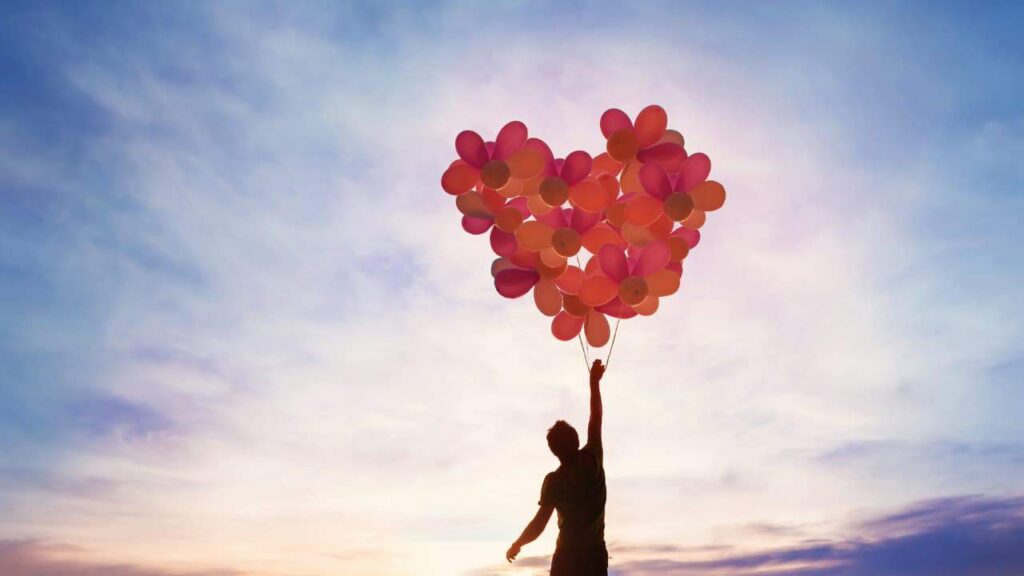
It’s true. It’s important work. I think if there were a second thing that I would be passionate about, it would probably be education. I think people need water first to be healthy. They need water at their schools. And that’s one of the big things we do, which is to bring clean water, sanitation, and toilets to students. But education is so important. Thanks for your work on that.
I have some questions about your story. You mentioned having an experience of your body going numb on one side. What was it? Did you discover the cause of it? Do you have any sense?
Never came back to that the tests were all negative and inconclusive. They couldn’t find anything wrong with me. Existentially numb, spiritually numb. My lifestyle was destructive. I would go to dinner at 10 o’clock, the club at 12, drink and do coke and go to after-hours at five in the morning. And then, at noon, take Ambien down. This is definitely not a healthy lifestyle. But nobody ever diagnosed it conclusively. Do
Do you still have any negative effects from all the drugs and alcohol?
Been very fortunate miraculously like that? Not just fortune.
How was it to get off of these addicting substances and addictive behaviors? Because isn’t pornography and strip clubs and all that? Isn’t that addicting, too?
I think if there were a second thing that I would be passionate about, it would probably be education.
Think what was really helpful for me was having this moment having such a clear moment, which was walking up the long gangway of a 500-foot hospital ship and sailing away to a new life. I wanted a new life. It was prophetic. It was symbolic. I wanted to leave everything about my old life behind on land and go somewhere else. I specifically remember the night before I surrendered my passport and joined the mission. I got fantastically drunk. I smoked three packs of cigarettes. Because I knew that would be it. I drank a little bit today. I like craft beer, and I moved to Nashville recently.
Give me some nice bourbon, and I’m okay. But I never smoked again. And I vowed never to look at another pornographic image again. I vowed never to gamble again. Never touch drugs again. There was something that just felt like this was the moment to say “No to all of it at once.” And then my environment changed so dramatically. I don’t think it’s up, but I could have done it. And just said, “While becoming a nightclub promoter, I’m gonna quit smoking, and I’m gonna quit sleeping around. I’m gonna quit snorting coke because that’s what everybody was doing around me.”
I will say when you join a hospital ship full of Christian doctors, none of those things are cool. Doctors are not smoking cigarettes. Doctors are not doing lines of cocaine in the bathroom. The culture was so different that it really allowed me to embrace this new clean living in a community that was celebrated in a club. I would just be the downer. “Oh, come on. You’re not joining us. You’re not joining us so that we’re over.” I don’t know that I would have been strong enough to quit any of those things with any longevity. Had the environment not dramatically changed.
That’s key, isn’t it? If you want to quit some bad behavior or bad habit, if you’re in a peer group where that’s their go-to, you have to ditch all those friends and get new ones. Are either of your parents still alive?
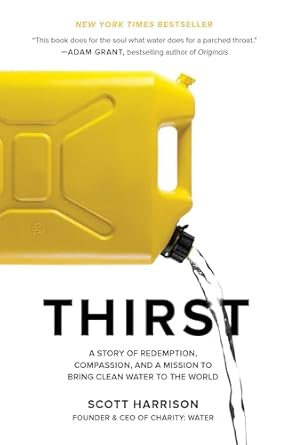
When my mom tragically died. We used to joke that because she was isolated from the world and only ate organic food and drank spring water, she was going to live to be 100. And she just learned how to cope over four decades with this disease. But sadly, she was diagnosed with late-stage pancreatic cancer several years ago and died four months later. It is a very quick diagnosis to death. My dad’s still alive. He’s in his early 80s, is in good health, goodish health and misses her. They were married for 49 and a half years; they almost made the 50th wedding anniversary before she passed. But she was able to watch the whole Charity: Water journey, and she saw the book come out and become a New York Times bestseller. She was really proud. I think of Act Three or Chapter Three in my life.
I can’t imagine. That’s really the prodigal son coming back into the fold and changing the world. Amazing. What does your dad think of all this?
He loves it. He’s been a part of the events. He hasn’t come to Africa with me. I’ve always wanted him to do that. But I don’t think he will. He’s not a big flyer but has been very proud. And I think sometimes just amazed that it started so small and has grown into almost a billion dollars of impact and 17 and a half million people with water now. He’s proud. I think that I stayed the course. It kept going, and I haven’t quit.
Their faith ended up rubbing off on you. How does it show up in your life? Do you consider yourself a Christian ritual?
I would consider myself a devout Christian who goes to church. I’m involved in my church, but the organization is not religious in any way, nor has it ever been. It’s been kind of fun to have that separation, where I get to live out my personal faith through my work. I remember James 1 verse 27; I think it says, “True religion is to look after widows and orphans in their distress and to keep yourself from being polluted by the world.” My organization is looking out for marginalized people. The second thing I think, “In true religion, is that your personal integrity is how you live your life.”
What I love is that our organization includes atheists and agnostics, Muslims and Jews, Mormons and Christians, and so many different Republicans and Democrats and libertarians and Bitcoiners. And everybody can come together and stand for clean water. It’s one of the most exclusive things or ideas for humanity. My personal faith animates me and drives me to do this work. But it would not animate a huge number of people on staff and a huge number of people in our community, probably the majority of our community.
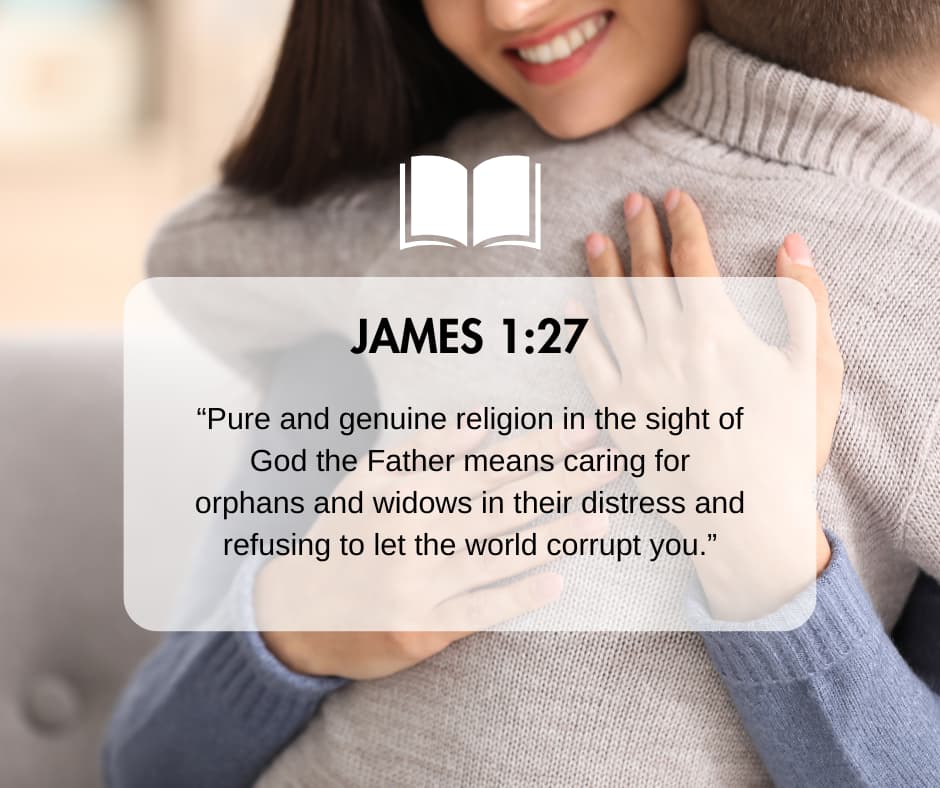
That’s been, I think, unique. Sometimes, a lot of people of faith will start a very similar parachurch organization, and it needs to mirror that. And for me, it’s been very freeing not to have an organization with any strings, and we work with everybody all over the world. And that’s been been really freeing. I think that’s a big tent. And also, just pragmatically, you’re gonna solve a problem that’s big. You need everybody, not just the people who pray to the God you pray to do what you do. But my faith has been extraordinarily important to me.
I mean, I wrote in the book, I mean, it’s funny, they were probably 12 or so direct, almost miraculous answers to prayer that I tried to write about; I remember my editing team is like, “No one’s gonna believe this. You can include three. Okay, we’ll give you three in your book where you can talk about praying for something.” Then, it specifically happens. But there were eight I didn’t write about or nine that I didn’t write about. I’ve certainly been encouraged so many times, personally, where I believe that we were at dinner last night, my wife was saying to somebody who was a new donor, she’s like, “Hey, just so, this isn’t Scott’s idea. We really believe this is God’s idea. We think God wants everybody in the world to have clean water. We’re kind of along for the ride, and we’re supposed to show up and work with integrity, passion, and excellence, but it’s bigger than us.”
It absolutely is. I know we’re at a time when I’d love to have you back to talk about those 12 direct answers to prayer. And hear every single one of them, not just three of them?
Well, I’ll tell one real quick: there was a moment when the 100% model was not working, but it was a year and a half into the organization. One part of it was the part where we said to the public to donate, and 100% of what you give goes directly to help people get water. But the other bank account was a lot harder. “Hey, we pay for overhead and staff salaries.” And I remember that we had $881,000 in the water bank account. And we were gonna miss payroll in a couple of weeks on the overhead bank account. And it was interesting.
My personal faith animates me and drives me to do this work.
The advice I was getting at the time from business leaders and some people around me was, “Well, you have almost a million dollars, so go borrow against that. To make payroll, you have to pay your people.” I think we had seven people on staff at the time, maybe eight or nine. And I think we had nine people on staff at the time, and you got to pay your office rent, and your landlord deserves his money. And I just remember thinking, if we borrow one penny for overhead from the public money that has been promised to go directly to help people get clean water, there’s a crack in the integrity of the organization, and the foundation is split.
I don’t want to work here. I don’t think anybody else would want to work here. Like, what’s the point? Now, if you can’t be true to your promise? I started calling lawyers, who were unknown to my staff at the time, and asked them how they had shut down to charity. “How do you unwind a charity in a year and a half because my business model just isn’t working?” And I remember praying with so little faith for some sort of miracle. But the game was up to a dumb business model, and people didn’t want to pay for overhead; they only wanted to give to the water projects, and entrepreneurs failed.
As I’m looking into winding this thing down, a complete stranger walks into the office, sits with me, and has a meeting. And I remember just opening up my laptop and clicking through the photos that I experienced on the mercy ship and talking about Charity: Water and the 100% model. And I remember this guy not liking me at all. Interestingly, he is a devout atheist, which is one of the things that he would tell you about himself. There’s certainly no common thread of faith or the miraculous or trying to be any sort of answered prayer. A couple of days later, after that meeting, he emailed me, which was about 12:10 am.
And I was still working as an early entrepreneur. And he said, “Hey, I really enjoyed meeting you. I love what you’re doing. I wired a million dollars into your overhead account.” And I remember logging onto that bank account and seeing it there, one comma 000, comma 000. And it was about a year of capital for overhead, 13 months of capital, and he said, “Keep up the good work.” There are 12 or so of those moments that are so specific. And that was, again, about $900 million ago. That one seed, that one kind of talent that I guess I was trusted with, has now turned into clean water for almost 140,000 communities around the world.
And that donors have become dear friends. Their families are with me now, in 14 countries, 13 or 14 countries, to see the impact. And they’ve watched the organization grow and been a huge part of it. But it’s funny. I think he might have gone to church once in 14 years, just out of curiosity to see what you do on a Sunday. No kind of kinship there, but deeply motivated by a belief that people should have clean water? And as long as I wasn’t going to take what I believed and try and force it on anyone else, then we could be great friends. We could be great allies in this.
We really believe this is God’s idea. We think God wants everybody in the world to have clean water.
Amazing. One thing I notice about these end-of-year giving campaigns is that a number of them have matching gifts or a matching fund. And it seems to me like if you had this year-round, where there was a matching fund, people would be motivated to donate specifically to overhead because their donation would be doubled. That could be a really cool idea.
If anybody’s listening wants to be a part of it. Reach Out. I would say that listening is a couple of ways people could get involved. We have a community called the Spring. And there’s a video, there’s a video, you heard me talk and like, “Oh, what does this actually look like?” There’s a short film we’ve made that’s had over 100 million views. You can go to the spring.com or Charity: Water and just Google the spring. And you can see that video, you can share it, and you can kind of see some of these images. But think of that as a monthly community of givers.
Just like Spotify, Netflix, Hulu, Disney Plus, or the New York Times subscription, except you don’t get music or movies or TV or news 100% of what people give every month. It goes directly to help people get clean water. And it only costs us $40 To get one person clean water. It’s probably a bunch of people listening who, without any pain to their bank account or income, could give one person clean water every single month. And that community now is the largest driver of growth for our impact. It’s not the billionaire givers. It’s not the huge givers.
It’s this kind of groundswell people that say, “I could do ten a month on my pension, I could do 20 a month, I could do 40 a month, I could do 100 a month.” And then kind of the next thing is we do have, there are some people that like you, I think, who have just sponsored an entire community and said, “No, I can write a check for 12 grand or send some stock and one community can get access to clean water.” If you’re moved, you’re more than welcome to join the mission. I’ve been asking on behalf of others now for 17 years. And water really does change everything. My wife and I have been blessed and have given a lot to the organization over the years. And we have several wells.
And we took our young kids to Africa for the first time this year. And they got to see the impact of our families’ giving. And it’s a real blessing to be able to provide life’s most basic needs for people. And the overhead today, there’s 131 families. People are curious how that million-dollar gift turned into a sustainable business model. It’s the founder of Spotify, Pinterest, Shopify, Twitter, and LinkedIn. Many entrepreneurs and business leaders have raised their hands and said, “We will pay for the overhead.” One hundred thirty-one entrepreneurs and families today pay for the overhead so that millions of people around the world are able to give in the purest way, where 100% of their money goes. Fabulous.
All right. Well, Scott, this was such an inspirational story of rising from this scorcher score like scorched earth. It just seemed like you were headed from disaster to ruin, but you turned your life around. And you made such a difference in the world and revealed so much light, and you continue to do that every day. Thank you so much for the gift of who you are in the world. And thanks for sharing your story. Well, thanks for having me on
And letting me share.
Thank you, listener. I hope you’ll do something with this, more than just open your wallet. I hope you at least open up your wallet, which doesn’t have to be to Charity: Water. But giving is an important aspect of being on this earth, as well as finding an opportunity where you can do something unbelievable. Like Scott, it will catch you in the next episode. I’m your host, Stephan Spencer, signing off.
Important Links
Connect with Scott Harrison
Books
Businesses/Organizations
Film
People

